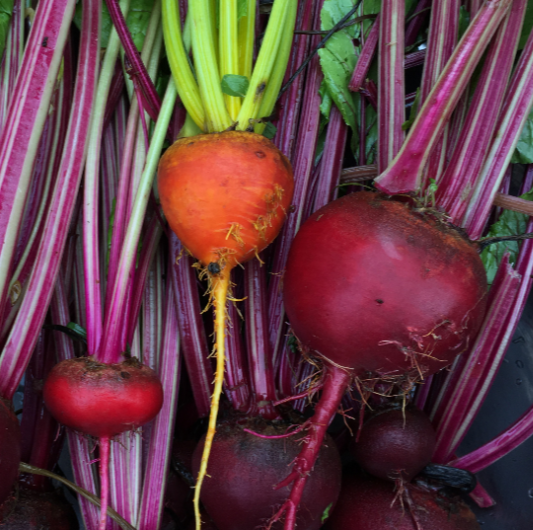My 10 Favorite Herbs for Digestive Health: A Natural Approach to Optimal Well-being
Maintaining optimal digestive health is vital for overall well-being. Herbs have long been used in traditional medicine systems for their beneficial properties in supporting and promoting a healthy digestive system. In this article, we will explore my favorite 10 herbs for digestive health and delve into their specific benefits and mechanisms of action.
Peppermint (Mentha piperita):
Peppermint is renowned for its soothing properties on the gastrointestinal tract. It can help relieve symptoms of indigestion, bloating, and abdominal discomfort by relaxing the smooth muscles of the digestive system (1). Peppermint tea or oil can be consumed to support digestion. Peppermint oil capsules contain concentrated peppermint oil in an enteric-coated form. The enteric coating helps the capsules pass through the stomach and release the oil in the intestines, where it can provide targeted benefits. Peppermint oil capsules can be taken before or after meals to support digestion and alleviate symptoms of irritable bowel syndrome (IBS), such as abdominal pain and bloating.
Ginger (Zingiber officinale):
Ginger has been used for centuries to aid digestion and alleviate nausea. It can enhance digestive enzyme activity, reduce inflammation in the gut, and promote smooth muscle relaxation (2). Adding fresh ginger to meals or consuming ginger tea can provide digestive support. Here’s a recipe for herb-infused candied ginger that are great spicy and sweet treats.
Chamomile (Matricaria chamomilla):
Chamomile possesses anti-inflammatory and carminative properties, making it an excellent herb for soothing digestive discomfort, reducing gas, and promoting overall digestive well-being (3). Enjoying chamomile tea after meals can be beneficial.
Fennel (Foeniculum vulgare):
Fennel seeds have been traditionally used to relieve digestive complaints such as bloating, flatulence, and cramping. Fennel stimulates digestive enzyme production and helps relax the muscles in the gastrointestinal tract, facilitating smoother digestion (4). Chewing on fennel seeds or drinking fennel tea can aid digestion.
Turmeric (Curcuma longa):
Turmeric contains a compound called curcumin, known for its anti-inflammatory and antioxidant properties. It can help reduce inflammation in the gut and support digestive health by improving gut barrier function and promoting beneficial gut bacteria (5). Adding turmeric to dishes or consuming turmeric tea can be beneficial.
Slippery Elm (Ulmus rubra):
Slippery elm bark is rich in mucilage, a gel-like substance that coats and soothes the lining of the digestive tract. It can alleviate symptoms of acid reflux, gastritis, and inflammatory bowel diseases (6). Slippery elm can be consumed as a tea or in supplement form.
Chamomile (Matricaria chamomilla):
Chamomile possesses anti-inflammatory and carminative properties, making it an excellent herb for soothing digestive discomfort, reducing gas, and promoting overall digestive well-being (3). It can help calm an upset stomach, relieve acid reflux symptoms, and alleviate gastrointestinal spasms and cramps. Chamomile also has mild sedative effects, which can aid in reducing stress-related digestive issues (3).
Licorice (Glycyrrhiza glabra):
Licorice root has long been used in traditional medicine for its beneficial effects on digestive health. It contains compounds that have anti-inflammatory and anti-ulcer properties. Licorice can help protect the stomach lining, reduce acid reflux symptoms, and support the healing of gastric ulcers (4). It may also assist in relieving symptoms of heartburn, indigestion, and bloating.
Marshmallow Root (Althaea officinalis):
Marshmallow root is rich in mucilage, a gel-like substance that provides a protective coating to the digestive tract, soothing and lubricating the mucous membranes. It can help alleviate symptoms of acid reflux, gastritis, and inflammatory bowel diseases such as ulcerative colitis and Crohn's disease (6). Marshmallow root also has mild laxative properties, promoting healthy bowel movements.
Dandelion (Taraxacum officinale):
Dandelion is not only a common weed but also a valuable herb for digestive health. It acts as a gentle liver tonic, supporting liver function and bile production, which aids in digestion and the breakdown of fats (7). Dandelion leaves are known for their diuretic properties, helping to flush out excess water and reduce bloating. The root of dandelion can stimulate appetite and support healthy digestion.
Artichoke (Cynara scolymus):
Artichoke has been used for centuries to support digestive health. It contains compounds known as cynarin and caffeic acid, which stimulate bile flow and improve digestion of fats. Artichoke also has antioxidant and anti-inflammatory properties, helping to reduce inflammation in the digestive system (8). It can assist in relieving symptoms of indigestion, bloating, and heartburn.
Incorporating these top 10 herbs into your daily routine can provide valuable support for maintaining a healthy digestive system. Whether consumed as teas, incorporated into meals, or taken as supplements, these herbs offer a natural and holistic approach to promoting digestive health. However, it's important to consult with a healthcare professional or herbalist before incorporating herbs into your routine, especially if you have pre-existing health conditions or are taking medications. Embrace the power of nature and enjoy the benefits of these herbs for optimal digestive well-being.
If you’d like to dig deeper in using foods and herbs for digestive health, register for our 4 week Gut Health Reset Program and learn the tools for reducing symptoms and restoring good digestion.
References:
Alammar N, et al. (2019). The impact of peppermint oil on the irritable bowel syndrome: a meta-analysis of the pooled clinical data. BMC Complement Altern Med. 19(1):21.
Hu ML, et al. (2017). Ginger and Its Bioactive Component Inhibit Enterotoxigenic Escherichia coli Heat-Labile Enterotoxin-Induced Diarrhea in Mice. J Agric Food Chem. 65(28): 5968-5977.
McKay DL, et al. (2006). A review of the bioactivity and potential health benefits of chamomile tea (Matricaria chamomilla L.). Phytother Res. 20(7): 519-530.
Agah S, et al. (2015). The effect of fennel (Foeniculum Vulgare) seed oil emulsion in infantile colic: a randomized, placebo-controlled study. Altern Ther Health Med. 21(4): 38-43.
Gupta SC, et al. (2013). Therapeutic roles of curcumin: lessons learned from clinical trials. AAPS J. 15(1): 195-218.
Langmead L, et al. (2002). Antioxidant effects of herbal therapies used by patients with inflammatory bowel disease: an in vitro study. Aliment Pharmacol Ther. 16(2): 197-205.




